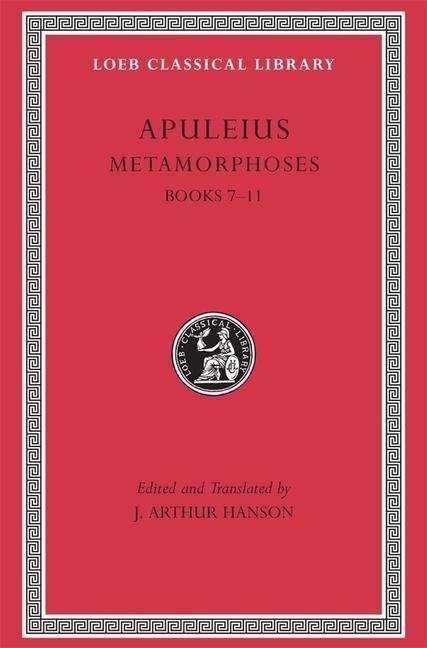Apuleius: Metamorphoses (The Golden Ass), Gebunden
Metamorphoses (The Golden Ass)
- Books 7-11
(soweit verfügbar beim Lieferanten)
- Verlag:
- Harvard University Press, 01/1989
- Einband:
- Gebunden
- Sprache:
- Englisch
- ISBN-13:
- 9780674994980
- Artikelnummer:
- 5728647
- Umfang:
- 320 Seiten
- Gewicht:
- 264 g
- Maße:
- 171 x 115 mm
- Stärke:
- 21 mm
- Erscheinungstermin:
- 1.1.1989
- Serie:
- Loeb Classical Library
- Hinweis
-
Achtung: Artikel ist nicht in deutscher Sprache!
Klappentext
A beguiling tale of mistaken transformation.
In the Metamorphoses of Apuleius, also known as The Golden Ass, we have the only Latin novel which survives entire. It is truly enchanting: a delightful romance combining realism and magic.
The hero, Lucius, eager to experience the sensations of a bird, resorts to witchcraft but by an unfortunate pharmaceutical error finds himself transformed into an ass. He knows he can revert to his own body by eating rose-petals, but these prove singularly elusive; and the bulk of the work describes his adventures as an animal. He also retails many stories that he overheard, the most charming being that of Cupid and Psyche (beginning, in true fairy-tale fashion, `Erant in quadam civitate rex et regina ¿). Some of the stories are as indecent as they are witty, and two in the ninth book were deemed by Boccaccio worthy of inclusion in the Decameron. At last the goddess Isis takes pity on Lucius. In a surprising denouement, he is restored to human shape and, now spiritually regenerated, is initiated into her mysteries. The author¿s baroque Latin style nicely matches his fantastic narrative and is guaranteed to hold a reader's attention from beginning to end.
The Loeb Classical Library edition of Apuleius is in three volumes.
Biografie
Lucius Apuleius ( 124-180) entstammte einer wohlhabenden Familie aus Madaura (Ostalgerien). Er studierte Grammatik und Rhetorik in Karthago und Athen, ehe er nach einem längeren Aufenthalt in Rom 155 nach Madaura zurückkehrte.Apuleius befasste sich nicht allein mit der höheren Bildung, sondern hatte auch lebhaftes Interesse an den orientalischen Kulten, besonders dem ägyptischen Isiskult. Eine konstruierte Mordanklage gegen Apuleius wurde fallen gelassen, aber ein Prozess wegen Zauberei worauf die Todesstrafe stand, kam zustande. Erhalten ist seine Verteidigungsrede Apologie, mit der er dem gegen ihn erhobenen Vorwurf begegnet; er wurde freigesprochen.

